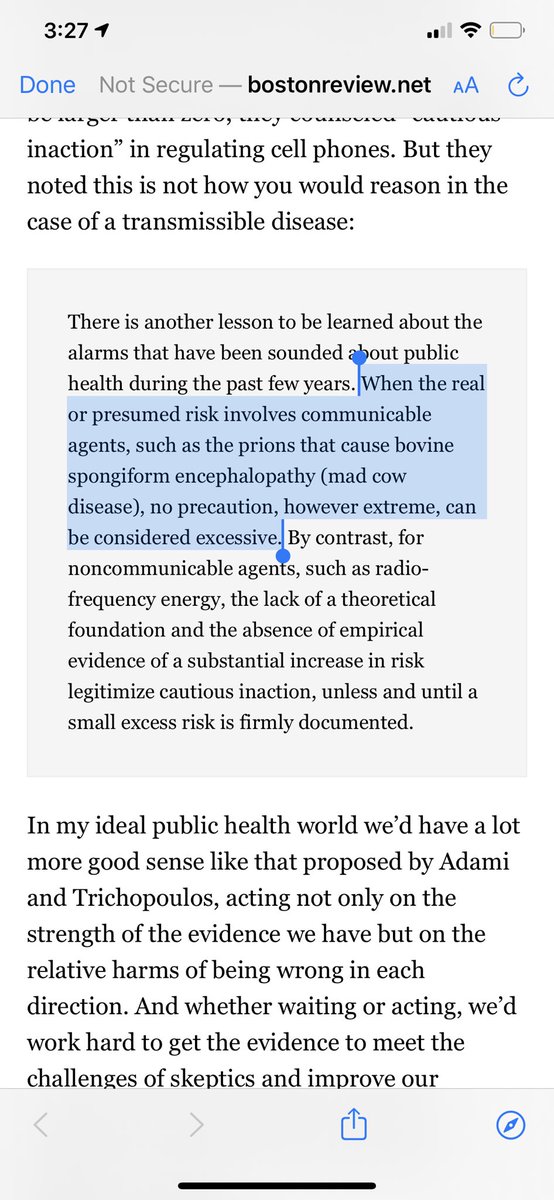Great essay by @mlipsitch. But I must disagree with one thing, a big thing. Contrary to the essay’s implication, it is NOT “good sense” that any action— however excessive—is justified so long as the threat is infectious.
Here are my reasons. 1/
http://bostonreview.net/science-nature/marc-lipsitch-good-science-good-science">https://bostonreview.net/science-n...
Here are my reasons. 1/
http://bostonreview.net/science-nature/marc-lipsitch-good-science-good-science">https://bostonreview.net/science-n...
We have finite resources. An excessive response to one threat means a deficient response to another. 2/
The basic practical and moral backdrop of scarcity doesn’t somehow go away when the excess is committed in the service of fighting infectious disease. The excess remains injurious to competing human goods which are left under-provisioned. 3/
Uncertainty doesn’t change things. While it is argued that, given the uncertainty we face re novel virus, there is a too fat a tail of potential risk associated with inaction and so, it is rational to err in favor of action; this is misleading. 4/
The tail of risk associated with action is equally fraught with uncertainty and equally fat with potential dread. Think of what we are doing now. Coordinated, indefinite, global lockdowns. 5/
Hundreds of millions are being plunged into deadly poverty. Hunger, missed vaccinations, missed medical care generally—appear poised to cause tremendous mortality. 6/
Everyone, but especially in the most vulnerable parts of the world, signs of this already happening are emerging. Add to this the staggering cognitive and mental costs, especially to children who are being deprived of schooling. 7/
In short, the potential cost of what we are doing suggests no less fat and staggering a tail of risk. There is absolutely no facile asymmetry here thst somehow formally foreordains action. And there should be no thumb on the scale in favor of what we are doing. 8/
Any apparent asymmetry is simply a function of the fact that early decision-making modeled the costs of inaction but did NOT model the costs of action. The appearance of asymmetry is this a function of salience bias, not reality. 9/
We need to resist the claim that lockdowns are a kind of null hypothesis from which we start. They are not. In fact, these actions are novel even within the epidemiological literature themselves. 10/
As Imperial College observed, what we are embarked upon, is unprecedented. 1918 saw 2-6 weeks worth of social controls, far more modest in breadth and depth. We had and still have little clue what cascade of secondary and tertiary effects we are causing. 11/
There is simply no deeper logic that supports the facially absurd premise that, in contrast to every other claim on our finite resources, the claim to fight a novel infectious disease must be given absolute pardon for its excesses. 12/
Though the imperative to respond to novel infectious diseases is compelling, this is an imperative that must compete with other imperatives. It does not get a free pass. To give it one is not “good sense”—but the worst kind of monomania from which we need to be freed. 13/13

 Read on Twitter
Read on Twitter


